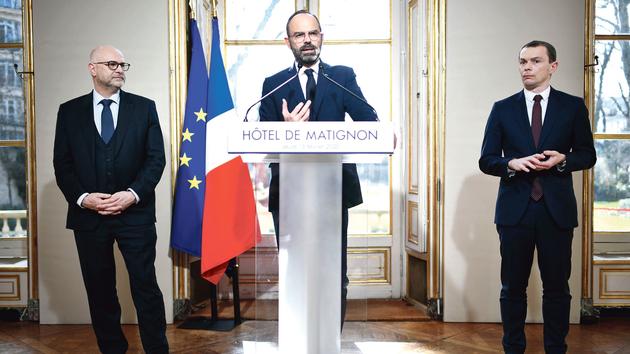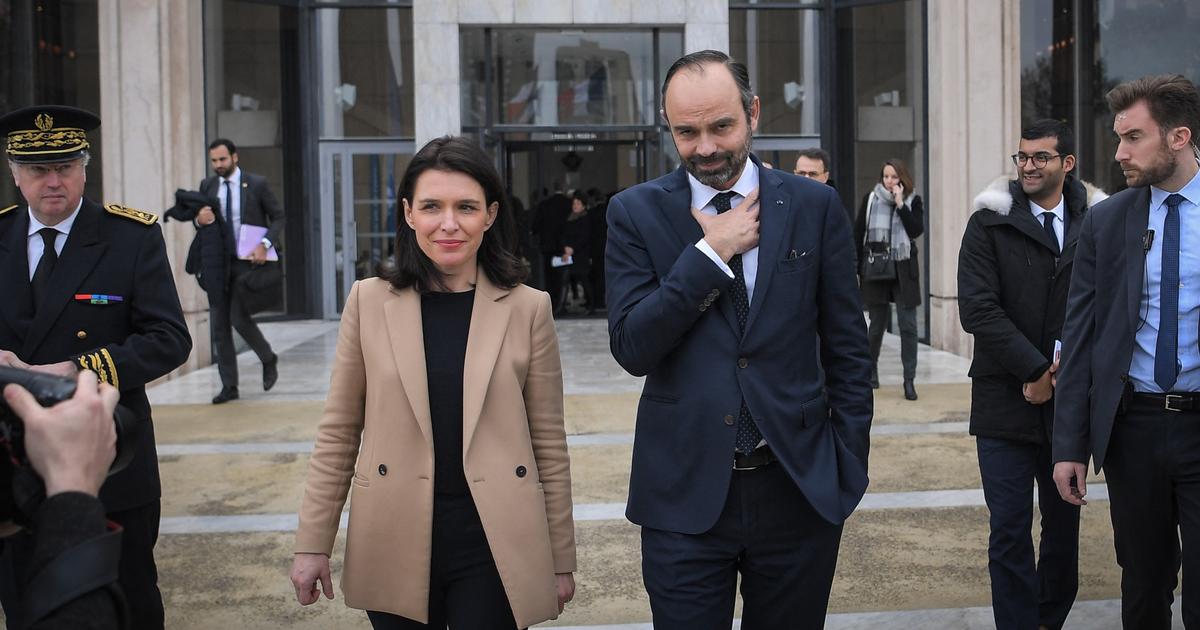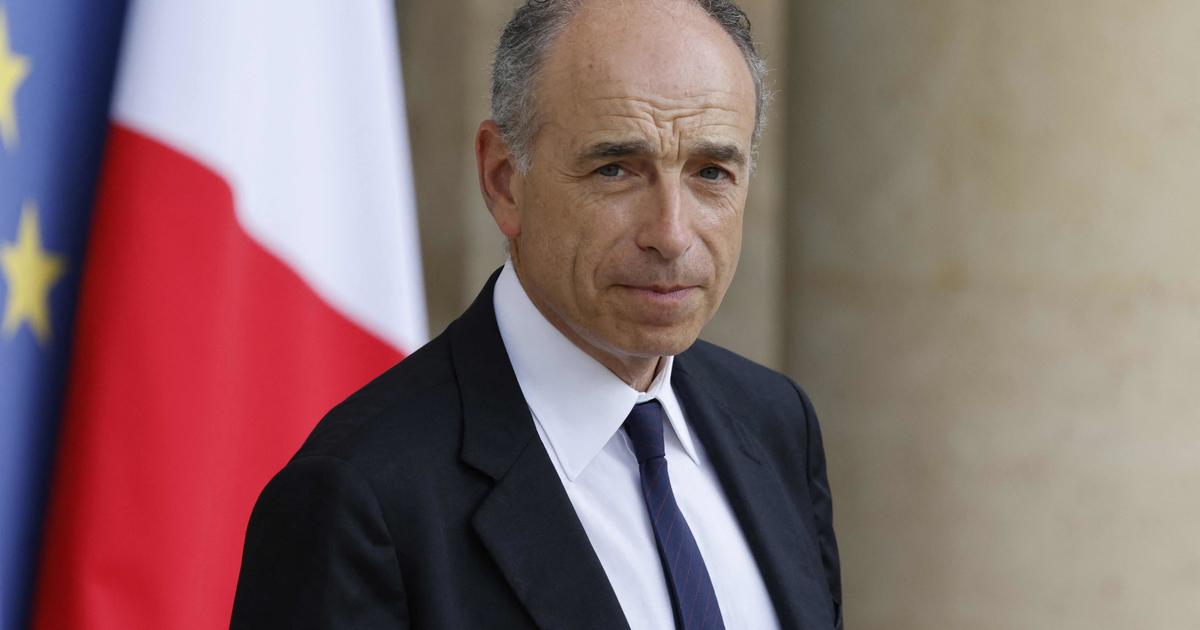The Prime Minister made new proposals on Thursday, during a meeting with the social partners in Matignon, on several points of the pension reform which had been referred to concertation: conversion of acquired rights, employment of seniors, minimum pension, arduousness… After two hours of discussions with the trade unions and employers, Édouard Philippe welcomed “ new social advances ”, which will give rise to integrated amendments to the bill which must be examined on Monday in session at the Assembly.
Read also: Pension reform schedule worries MEPs
Unions against reform are still demanding its withdrawal. The reformist centrals welcomed the proposals of the head of government but regretted the lack of progress on the arduousness, the CFDT even denouncing a "blocking" of the employers.
● More advantageous, the "Italian clause" is retained
Good news for active workers born after 1975 whose career will take place on both systems. If the government has always promised that 100% of the rights acquired under the current system would be preserved, several technical options were under consideration. To the satisfaction of the unions, it was the most favorable option, that allowing to ensure the highest future pension, known as the “Italian” clause, which was chosen. The calculation of rights acquired before 2025 will be made at the time of actual retirement - and not at the time of the changeover to the new system -, " on the basis of the last six real months " for civil servants or " by reference to the 25 best years ” for private sector employees, which is“ more respectful of the reality of careers, ”said Edouard Philippe.
This more expensive option is individually more reassuring and above all constitutionally more solid. This "favorable calculation" will "calm about fifteen additional generations" and allow a transition "very smoothly" towards the "universal system" welcomed Laurent Escure, the secretary general of Unsa.
● The minimum contribution is increased
Édouard Philippe confirmed the increase in the contributory minimum: anyone who will retire from 2022, after having worked all their life (i.e. 156 quarters) in minimum wage, will receive at least 1,000 euros in 2022 and 85% of minimum wage 1,147 euros, as of 2025. The unions are asking for a minimum pension at 100% of the minimum wage. The head of government said he was ready to discuss it during the financing conference while recalling that " it is legitimate in our society to keep a gap between income from employment and income linked to retirement " . This commitment only concerns new retirees, but some members of the majority would like to extend it to current retirees. A mission to quantify such a measure should be entrusted to the deputy LREM Olivier Véran.
● Phased retirement is made easier to access
Phased retirement, which should allow a more flexible transition between activity and retirement, will be open to 60 years in the public and private, and made easier to access. In addition, Muriel Pénicaud, Minister of Labor, will launch a consultation on the "universal time savings account", where each active person can put his days off or RTT not taken and use them at any time in his career: to train , to take care of children or elderly parents, to retire earlier, etc.
In the public service, the government is going to undo " without waiting " the existing time savings account (CET) to allow half-time, at the end of career, " for example in the hospital where everyone measures the devotion and the hard work of caregivers and nurses, "said the Prime Minister. Civil servants, some of whom have already stored many days on their CET, will be able to complete their last two years of service at 80% of time by "skipping" their days, instead of leaving six months earlier by combining their days.
Read also: Matthias Baccino: "Recasting pensions: why the executive is alone and civil society defiant"
In the same vein, the government wants to develop skills sponsorship, which allows companies to make an employee available during their working time for the benefit of a project of general interest. The employee remains paid by the company at the same salary and can deduct part of their taxes. The government wants to extend this device to companies with fewer than 5,000 employees.
● Painfulness: unions and employers oppose
For those working in a difficult job, Édouard Philippe announced the creation of a “real right to retraining” by creating a paid six-month retraining leave, benefiting from 12,600 euros in endowment to finance training and switch to a new one. job. The professional branches will also be " invited to open discussions " by the end of the year " to launch a massive plan to prevent arduous work ".
We feel a big blockage of employers' organizations
Laurent Berger, head of the CFDT A fund of 100 million euros, financed by the social security system, will finance the purchase, for example, of wheelbarrows towed on construction sites, “maintaining” belts for caregivers, etc. On the other hand, "the question of reparation" , that is to say the right to an early departure before
62, does not reach consensus and is referred to the funding conference. " We feel a big blockage of employers ' organizations ," lamented Laurent Berger, boss of the CFDT. Medef has expressed its " concern " in the face of " a total impasse " on the financial aspect. " Knowing how much it can cost will be essential to knowing what we can afford, " concluded CPME President François Asselin.
Buzyn announces the abolition of the nursing assistant competition
While the candidacies for training institutes for nursing assistants (Ifas) are in sharp decline, the Minister of Health and Solidarity announced Thursday a series of measures to enhance the attractiveness of this profession. On the road with Myriam El Khomri, who had given her a report in October on the trades of old age, Agnès Buzyn announced the abolition of the nursing assistant competition, which the former Minister of Labor had proposed to her. It will be replaced in September by an examination on file and an oral, further enhancing the interpersonal skills. Agnès Buzyn also announced the overhaul of initial training, which will go from 10 to 12 months, with new lessons, such as spotting frailty or preventing loss of autonomy. An effort will also be made to prevent claims in this profession, with the creation of a national prevention fund endowed with 40 million euros and the establishment, over the last two years of his career, of a half-time paid at 75% with 100% retirement contribution thanks to the support of the Hospital Employment Fund.









